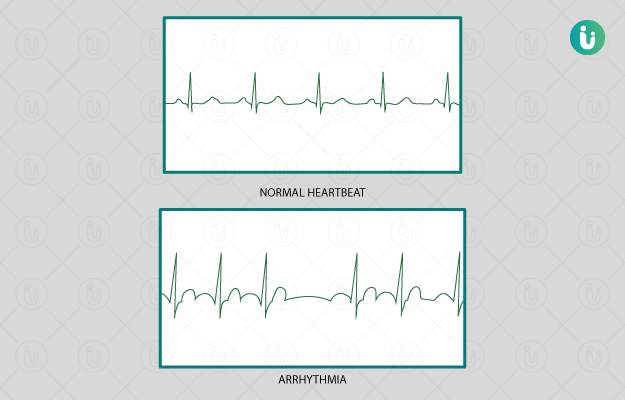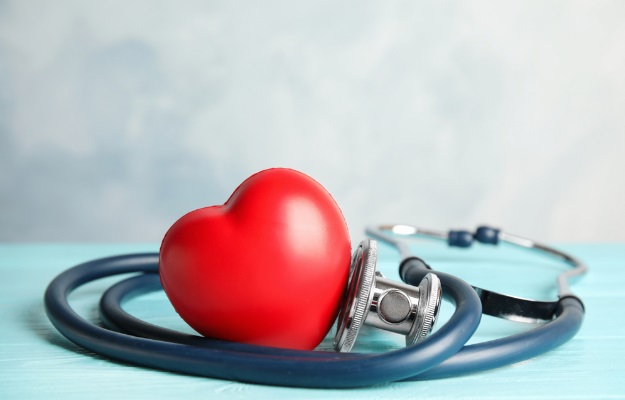What is arrhythmia?
Arrhythmia refers to a heart condition, which is characterised by irregular patterns of the heartbeat. In adults, the normal resting heart rate is between 60 to 100 beats per minute. In arrhythmia, the heart may beat slower than the normal rate, faster than the normal rate or with an irregular pattern. There are different types of arrhythmia, out of which the most common one is atrial fibrillation where the heart beats are irregular and faster than normal.
If the heart beats faster than normal, it is known as tachycardia (>100 beats per minute). If the heart beats slower than the normal rate, it is known as bradycardia (<60 beats per minute).
What are its main signs and symptoms?
Symptoms of different types of arrhythmia may overlap.
Symptoms of arrhythmia, in case of tachycardia, include:
- Dyspnea (shortness of breath)
- Dizziness
- Chest pain
- Feeling light headed
- Sudden weakness
- Fainting
- Feeling a rapid sensation or fluttering in the chest (palpitations)
Symptoms of arrhythmia, in case of bradycardia, include:
- Confusion
- Palpitations
- Sweating
- Tiredness
- Difficulty in exercising
- Shortness of breath
What are the main causes of arrhythmia?
Arrhythmia is a result of abnormal changes in the heart tissue. It is usually set off by a trigger, while in some individuals, the cause may be unknown. Arrythmia may be caused by:
- Abnormal changes in the heart tissue such as reduced blood flow to the heart, stiffening or scarring of the heart tissue.
- Exertion and emotional stress, which raises the blood pressure and trigger the release of stress hormones can also lead to arrhythmia.
- Imbalance of electrolytes, hormones or fluids in the blood stream can, in turn, have an effect on the heart rate.
- Intake of certain medications such as hypertension medicines can cause arrhythmia.
Factors like advanced age, family history, and genetics can increase one’s risk of developing arrhythmia.
How is it diagnosed and treated?
To diagnose an arrhythmia, the doctor will inquire about the patient’s family history, physical activity routine, and other factors.
Following this, there will be a physical exam, in which the doctor will assess the pulse, heartbeat, and look for signs of other diseases.
Other diagnostic tests include:
- Blood tests- to assess for levels of electrolytes, lipids, hormones
- Electrocardiogram (ECG) – to assess the heartbeat, its rate, rhythm, etc.
- Echocardiography (ultrasound scan of the heart)
- Ultrasound of various regions of the body – to exclude other diseases
The treatment for arrhythmia includes lifestyle changes to manage the condition better. The doctor may also prescribe medications such as blood thinners and other drugs like beta blockers or adenosines to stabilise the heart rate. In severe cases, implanted devices such as pacemakers and implantable cardioverter defibrillators may be used to control the heartbeat.
(Get online doctor consultation for any health issue)

 OTC Medicines for Arrhythmia
OTC Medicines for Arrhythmia
 Arrhythmia articles
Arrhythmia articles
















